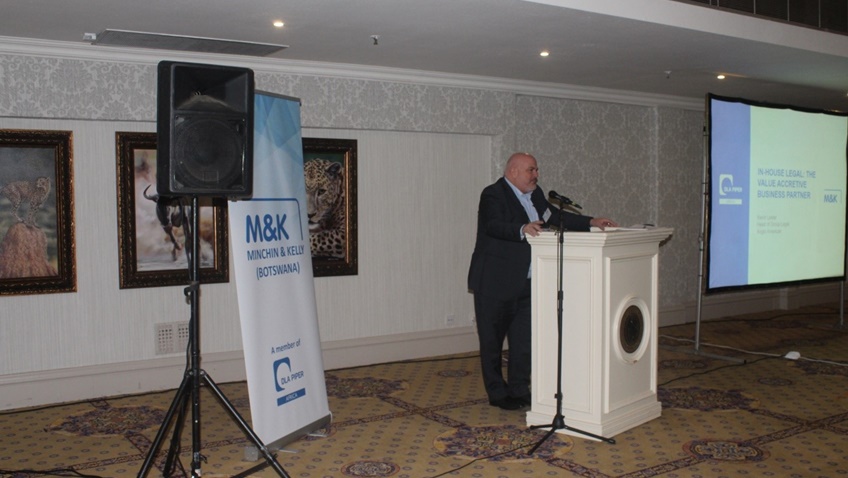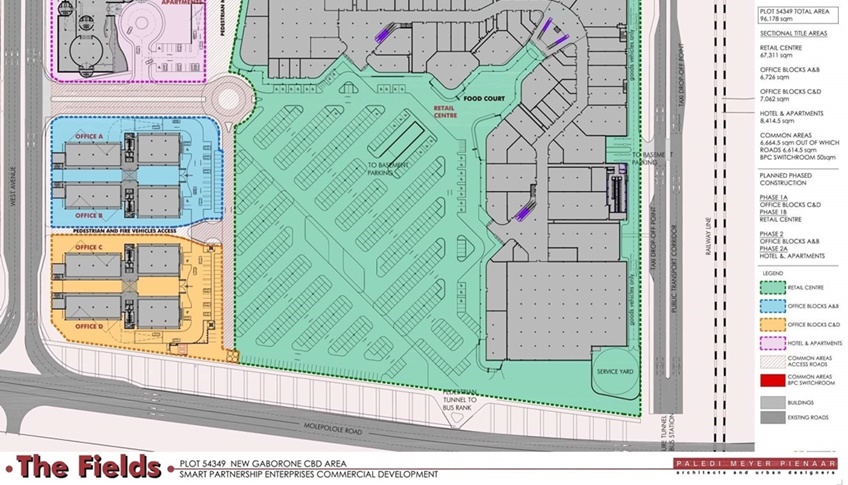The newly introduced Trust Property Control Act has been a long-awaited development in our jurisdiction. Before the Act, Trusts were governed by common law principles, with the popular trust instrument being the Notarial Trust Deed. Read more “Trust Property Control Act”

WIN Africa
Minchin & Kelly (Botswana), (“M&K”), hosted its second WIN Africa event on 31st August 2018 at the Peermont Grand Palm Hotel, Gaborone, Botswana, at which the entire M&K team of attorneys was in attendance. Read more “WIN Africa”
Corporate Botswana is ready for Corporate Governance
Corporate governance is a set of rules and practices by which a governing board is supposed to ensure accountability, fairness and transparency in an organisation’s relationship with its stakeholders. Corporate Botswana developed its own corporate governance code in order to address perceived gaps in the existing governance structures. This was mostly an adoption of the King III. Read more “Corporate Botswana is ready for Corporate Governance”
The conundrum of holding mortgage bonds as security for multiple lenders
Financing of large scale projects or infrastructure requires substantial funding to the extent that a bank or a financial institution is often not prepared or does not have the capacity to fund the project or infrastructure solely. To deal with this, lenders often form a consortium to finance the project or infrastructure collectively. Read more “The conundrum of holding mortgage bonds as security for multiple lenders”
NBFIRA’s powers challenged
The Non-Bank Financial Institutions Regulatory Authority (NBFIRA) is the body charged with regulating non-bank financial institutions and improving the fairness, efficiency and orderliness of the non-bank sector and the stability of the financial system.
AOD – An unequivocal admission of liability
An Acknowledgment of Debt according to Blacks Law Dictionary, 8th Edition is a written document stating the recognition by a debtor of the existence of a debt commonly referred to as an “AOD”.
The said acknowledgment is an “agreement” which embodies an arrangement or understanding between or among two or more parties which purports to establish a legally binding relationship in law.
Proposed amendments to banking financial service laws in Botswana
Banking financial service laws in Botswana are proposed to be amended to comply with the Eastern and Southern Africa Anti-Money Laundering Group (ESAAMLG) mutual evaluation to Botswana. The banking financial service laws proposed to be amended are the Banking Act, the Proceeds and Instruments of Crime Act and the Financial Intelligence Act.
Read more “Proposed amendments to banking financial service laws in Botswana”
Cometh the hour, will your Will be done?
One hopes it doesn’t come knocking in the neighbourhood, or worse, on the door of a loved one. Death is taboo in many cultures around the world. It is not a subject to unwind over after a long day at work. This is because very rarely do we feel ready for it, even though it is an eventuality for all of us.

The Fields Precinct
Smart Partnership Enterprises (Proprietary) Limited (“Smart”) is the proprietor of a 9.61 hectare plot located in the new Central Business District of Gaborone. The plot, which Smart acquired from the Government in October 2009, is zoned for mixed use.
Is the “Increasing Cost” clause in your Loan / Facility Agreement in accordance with the Bank of Botswana position?
Recently the Bank of Botswana (“BOB”) affirmed a position in respect of the basis upon which financial institutions licensed to provide advances, loans and credits can increase cost in terms of a concluded and operative agreement. It is usual for financial institutions to have the right to increase their costs, increasing their interest rates during the subsistence of a loan/facility agreement. However the issue is; on what basis are the financial institutions increasing the interest rate? Is it based on a monetary policy decision or is it based on markets and/or credit disruptions?

 Victor Chilembwe,
Victor Chilembwe,  Namie Modiri,
Namie Modiri,  Obakeng Mmopi,
Obakeng Mmopi,  Isaac Ntombela /
Isaac Ntombela /  Terence Dambe/
Terence Dambe/  Tatenda C. Dumba /
Tatenda C. Dumba /  Obakeng Nthomamisi,
Obakeng Nthomamisi,  Nyaradzo Mupfuti /
Nyaradzo Mupfuti /  Agang Mfolwe,
Agang Mfolwe,  Jayne Cross /
Jayne Cross /